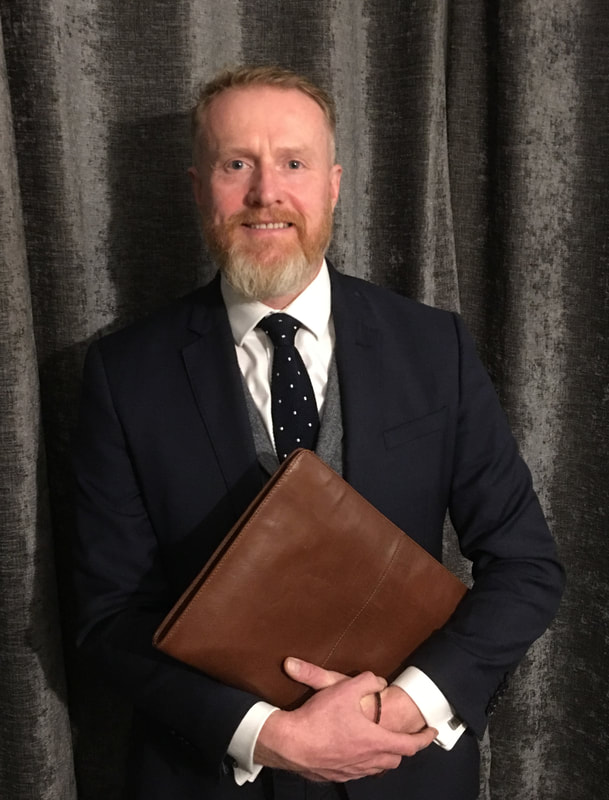|
I find myself writing this blog post for 2 reasons:
1. Over the course of the next 6 weeks I will feature heavily in a documentary series made by the production company Label1 to be broadcast on BBC 2 - ‘School’ 2. I wish to shine a light on my own experience of leading schools in challenging circumstances, with the same intent as the programme referred to above, to spark a debate about the state of the education system in its current iteration. I believe, my own experiences, described here and shown in the series will resonate with many school leaders up and down this country. It is not my intent to deliver a blow by blow account (I’m saving that for the book!!), rather to describe some of the key contexts and decisions taken whilst managing a challenging set of circumstances. It is the first in a series of blog posts that will aim to discuss some of the broader challenges that we all face. The start of a new year, I am a ‘headteacher’. I have a lot to learn but I have confidence, principles, a vision and a plan: - Be visible - Build confidence amongst the staff body - Get the culture right amongst the student body - Create a culture of development, open doors, sharing good practice, celebrating the positive - Give clarity to leaders and a clear strategic plan There are some key moments, where the reality of what you have taken on hits hard, and they come thick and fast – the first INSET day and open evening are two that spring to mind. You are a public figure, get the messages right because everyone is looking to you! The first year was an absolute whirlwind and I loved it. I got to know the school well, there were lots of positives, as there are any in any school but there was a hell of a lot to do: - Teaching and learning. A decade of education development seemed to have passed the school by, in regard to the curriculum (lacking any plan or cohesiveness), schemes of learning ( in places excellent, but in others non-existent resulting in teachers having to invent the wheel for every lesson) pedagogy (some superb practitioners but others who had not been invested in and this was reflected in their lessons) - Student Culture. Amazing students (aren’t they all?) but too many with low aspirations, negative about their school and lacking responsibility for their own learning - Finance. The budget that had been set in April (as an LA school) had to be remodelled for the transition to an Academy. What became clear, very quickly, was that the budget for the year did not balance. The carry forward had been used to balance the books which created a double whammy: the carry forward was not as much as had been thought (ouch 1) and that there was an in-year deficit of a quarter of a million pounds (ouch 2). Planning forward to the following year also revealed that the fall in student numbers was going to cost us dearly. A point here for clarity, as it was often mis-represented in the press, students were not leaving they were just not joining. A year group of 200 students leaves year 11 to be replaced by a year group of 100 in year 7. In total – save £1million pounds by the following September and save a quarter of that in- year - Post-16. Unsustainable, Amazingly confident young adults but too few of them. In essence, the school was a mess. We didn’t talk about OFSTED but we agreed as a school that we were RI and that as long as we were improving that would be enough. However, despite the dedication and hard work of many of the staff it was clear that the RI judgement 9 months earlier was generous. I wasn’t fazed. What it meant was we would need to be creative and radical in our thinking and brutally honest about where we were. We became an academy, governors left, staff left, we relentlessly targeted year 11 (short term – play the game!), we restructured everything we could and became an outward facing school learning from our primary partners, secondary partners locally through the trust and the LA and further afield through AFA, London Challenge schools and a teaching alliance. Writing this down, it’s easy, looking back, to stack everything up negatively. However, this was school leadership, the energy was amazing, the challenges were clear, it was an incredibly exciting time. The staff accepted the various challenges and their solutions. We developed a three-year plan, our journey to excellence. Subject areas across the school developed teaching and learning excellence maps that they would hold themselves to account for. Maths and English worked hard with primary partners (who were amazingly generous with their time) they ripped up KS3 schemes of learning and developed new ones with more stretch and challenge based in the reality of what they had seen that the pupils were capable of at KS2. The culture started to shift, a house system, new uniform and clarity around behaviour expectations was having an impact, more so in the younger years but still an impact to be celebrated. We balanced the books both for the year and for the following year’s budget. We ended the year on a high, everything was starting to change. You don’t get a lot of feedback as a headteacher. But at the end of the year the feedback I did get from the community, parents, students, staff, my CEO, partner headteachers and governors gave me the confidence that we were making progress. The strategies were the right ones and were having an impact. Another headteacher moment – results days, the anxiety, a very public ‘proof in the pudding’ moment. Post-16 results were ok, not brilliant but not a disaster. At GCSE a couple of subjects, who had previously delivered solid results, bombed. Despite all the intervention for year 11 the picture was a long way from good. Damn, ok dust yourself off and go again, Rome was not built in a day. You start to feel the rhythm of your organisation and the school year. New year, new leaf. Students in new uniform. Looking smart, feeling proud. Culturally it all felt different, the results may not have been there but this was moving, we were improving, people were smiling! You welcome the new year, but it is a fleeting moment, before you know it you are planning for the one afterwards. The strategic ‘quick wins’ are in place and up and running. Now to nail the big stuff – the curriculum, if we get that right and launch it for the following year we will have done the single most important thing. Attainment at the school had always been ok and sometimes was good, a reflection of our above average intake. The progress wasn’t ok and our curriculum needed to address this if we were ever going to get away from the hamster wheel of year 11 patch, repair and panic intervention. Our curriculum would be planned to build on the pupil’s prior success at KS2, to reflect the above average nature of our intake, to excite the students and to stretch and challenge them ALL. This is the key stuff for me, its long term and it is the backbone of your tenure as a headteacher. The curriculum, in its broadest sense to include the principles, the structure, high quality schemes of learning, the pedagogical development to deliver it and the extra-curricular. The financial pressure meant we had to be creative, but the educational benefit was more important. Our students deserved the best, they were bright, but they were ‘coasting’ and our curriculum was going to push them. New GCSEs on the horizon. All of this went into the pot, we looked at what was out there, we researched. We developed something collectively as a school, there were high levels of buy in – we were going to launch the following September and we needed to be ready. Oh, and the small matter of the finances, those student numbers haven’t stopped falling so we need to save, approximately, another £800,000 for next September. Again, we ended the year on a high, it had been challenging but the curriculum we had developed had given the whole staff something to get behind. Confidence was up, I had created additional leadership capacity which meant I could contribute to ‘the system’ I was chair of the secondary headteachers and became executive headteacher of a trust primary school. The results were up but progress was still a problem. The books didn’t quite balance at the end of the year so we had a deficit and there had been no way for us to set a balanced budget for the following year, so we were also looking at a future deficit.
1 Comment
9/10/2019 10:32:46 am
I am so happy to have read your leadership story. Each and everyone of us have our own fair share when it comes to leading. It's full of struggle and sacrifices, and there will be days that you need to give up. I don't think a leader can go and lead without all these that's why we need to be thankful that we get the chance to face struggles. We just need to see it on a different perspective like "without challenges, you will never know what you are capable of" So, it would be good to think that way, isn't it?
Reply
Leave a Reply. |
Author
James Pope - experienced school leader and passionate about the need for change in our profession! Archives
June 2020
Categories |


 RSS Feed
RSS Feed